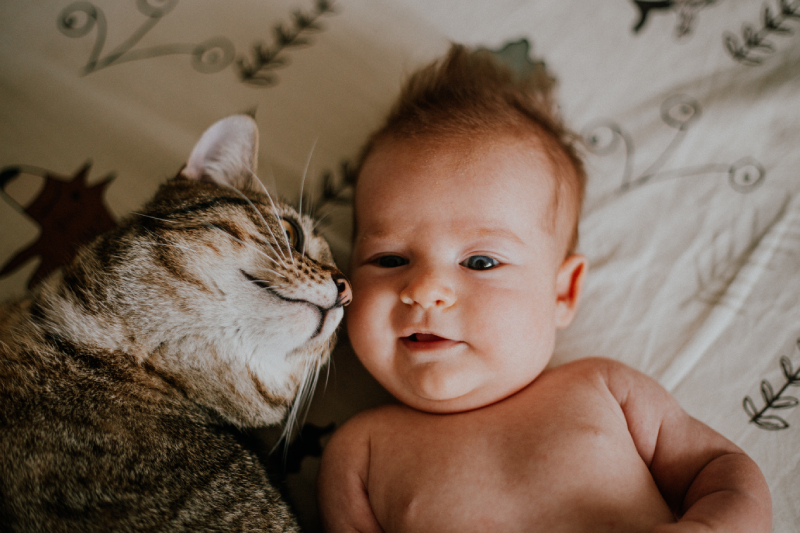Of the many changes a new baby brings to life, it is easy to overlook how this new addition to your family can affect your pets. The bond between pet and a child is deep and rewarding, but needs to be carefully managed from the beginning. Here are some useful tips to help your pet safely get to know, and grow to love, your new child.
- Make your pet familiar with your baby’s scent. Prior to bringing your child home from the hospital, take an article of his or her clothing and calmly present it to your pet, letting them sniff it from a distance before letting them examine it up close. It is important that your pet learns to associate the smell with positive feelings and reinforcement, beginning the process of training your pet to respect the baby.
- Establish boundaries around the nursery. Condition your pet to understand that nursery, or place when your infant will spend the most time, is off-limits and they may only enter with your permission.
- Control the first meeting. The first time your pet and baby meets should be calm and positive, establishing good experiences from the start. Reward good behavior like cautiously approaching the baby, gentle movements, or responding to obedience cues with treats. Make sure your pet has burned off excess energy by taking them for a walk beforehand.
- The first few weeks are important. Continue to reward your dog for good behavior around your child. This will teach them to associate being tranquil with positive reinforcement. Make sure they have extra toys available so they don’t play with the baby’s belongings.
- Never leave your child alone with your pet. Your baby’s crying and sudden movements may make your pet nervous and force them to lash out. Because they are so small, pets may hurt them, even if they aren’t intending to.
If you have questions for your Del Valle Pet Hospital veterinarian, stop by our veterinary hospital in Livermore or call (925) 443-6000 to schedule an appointment.


